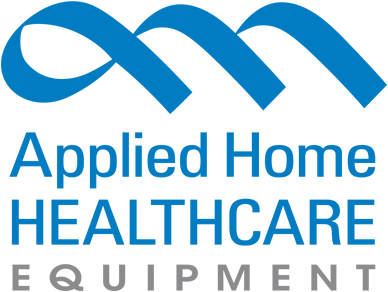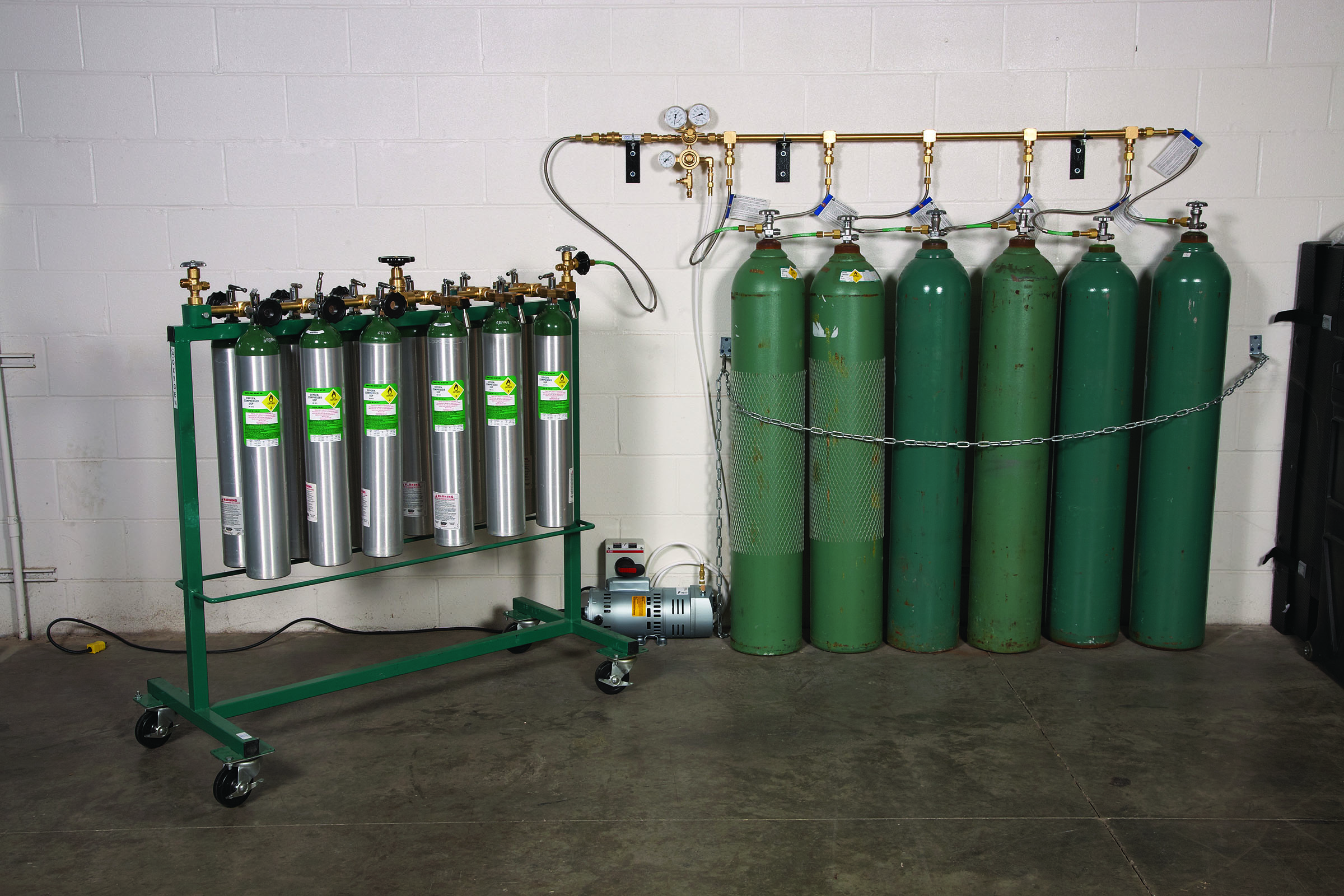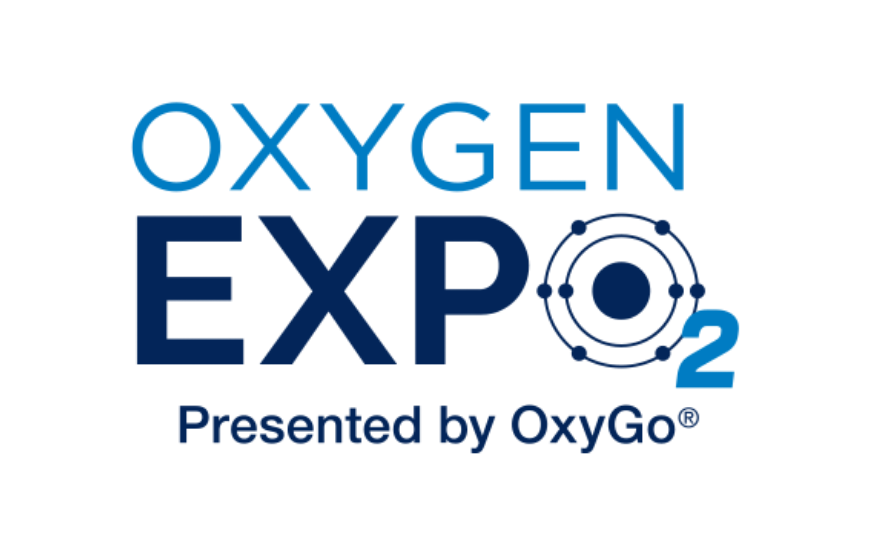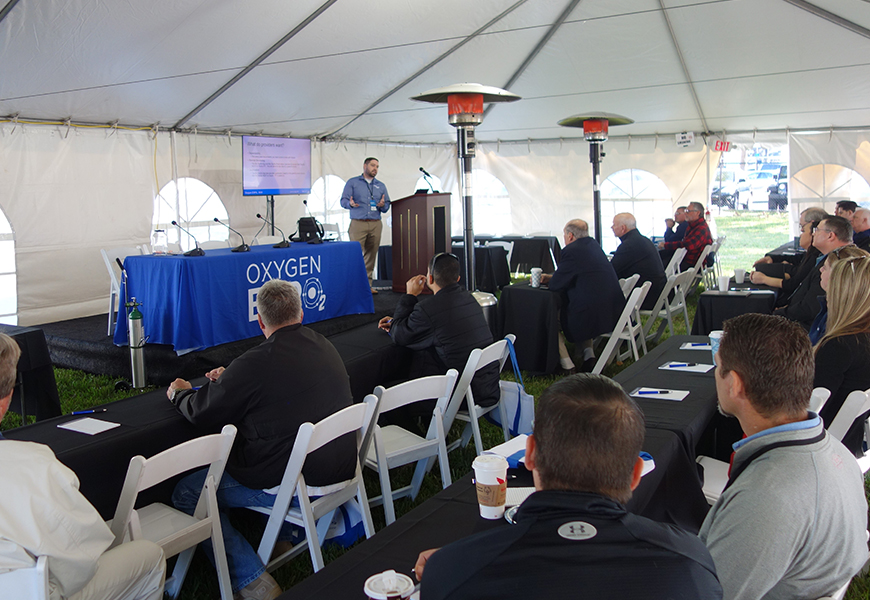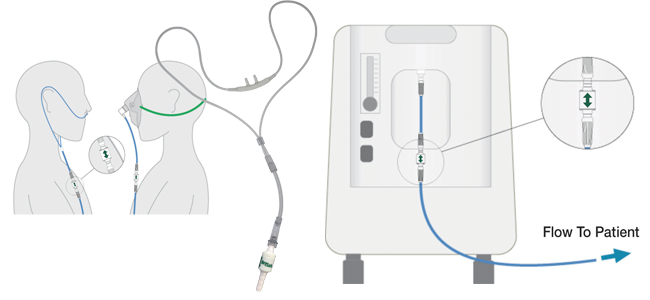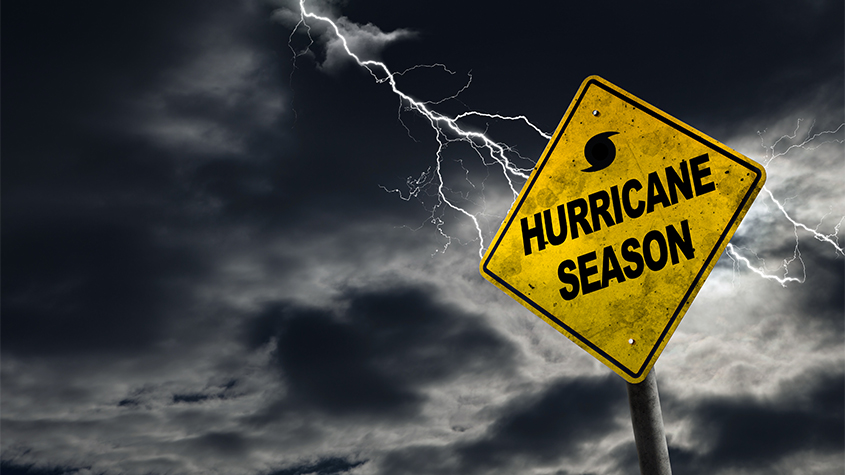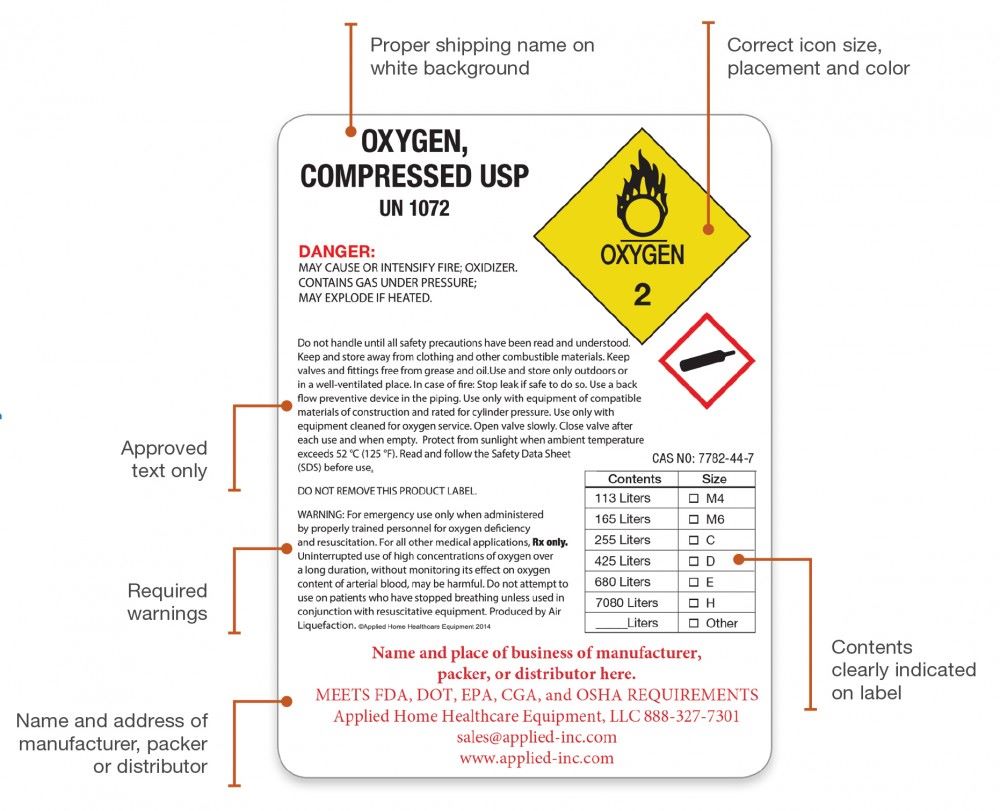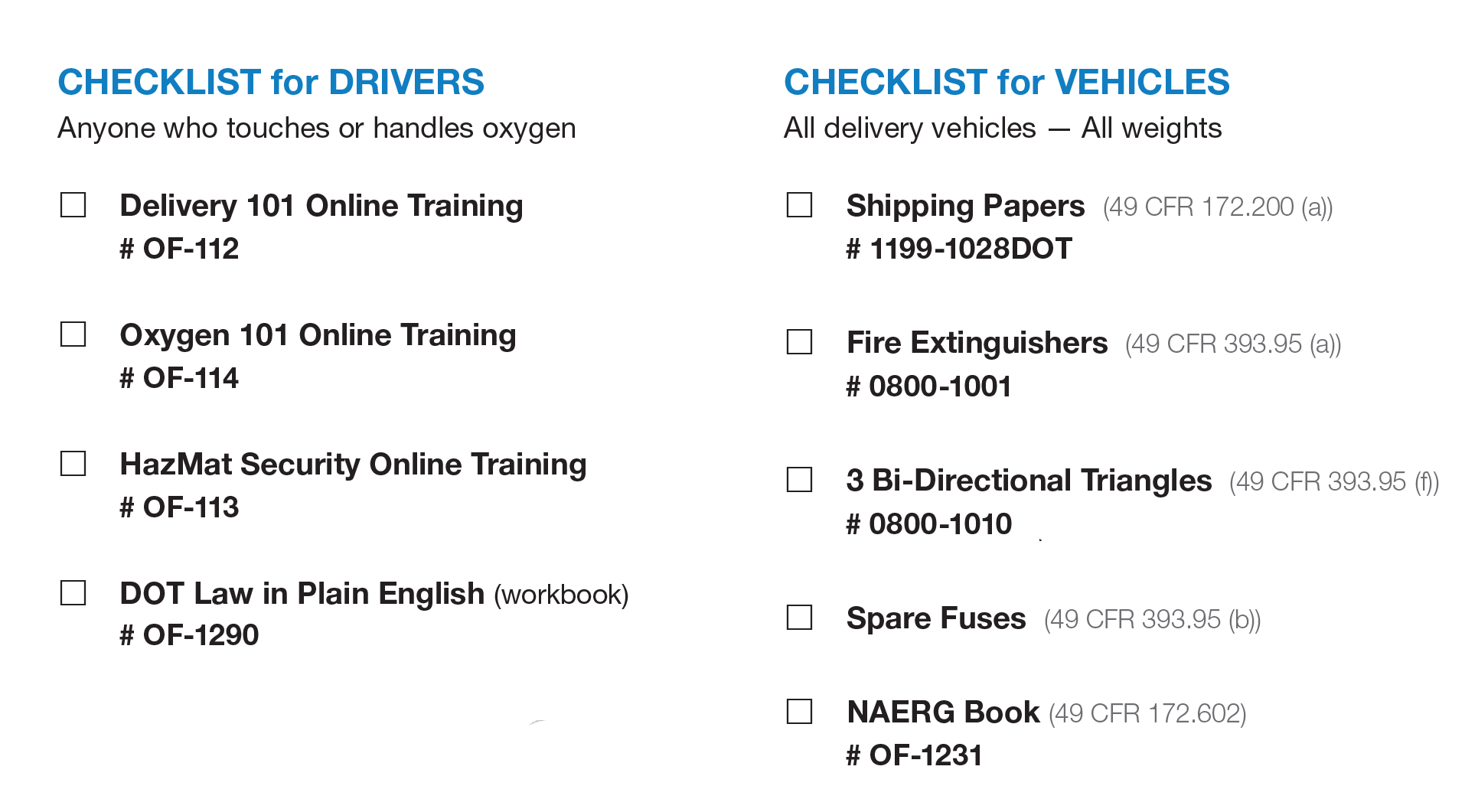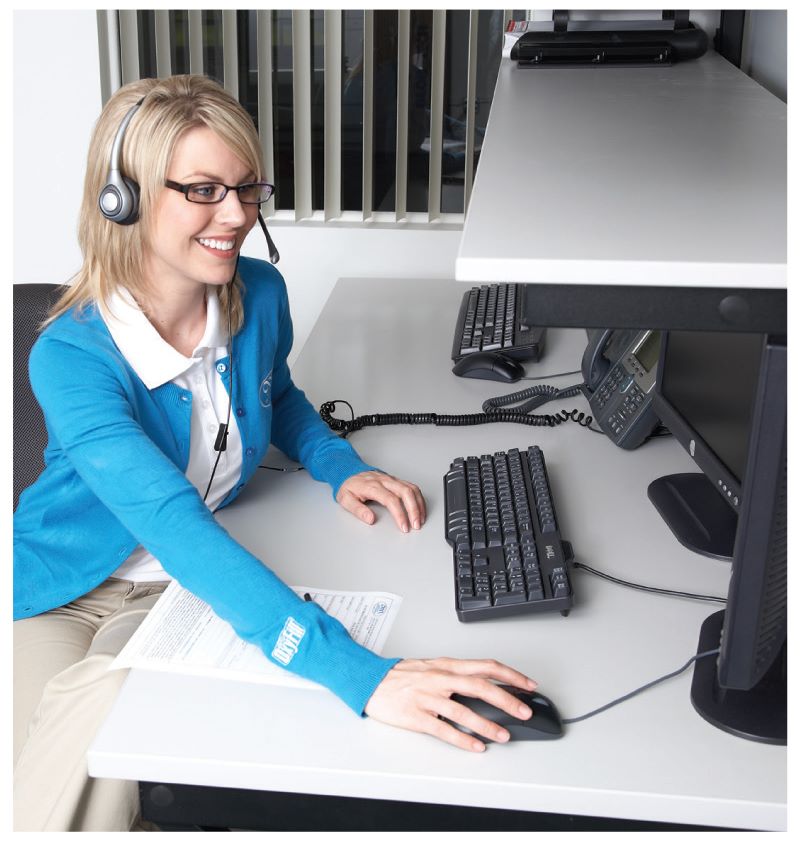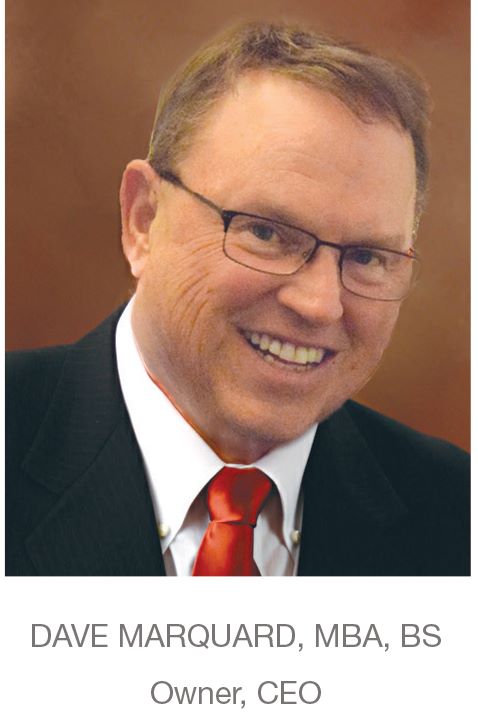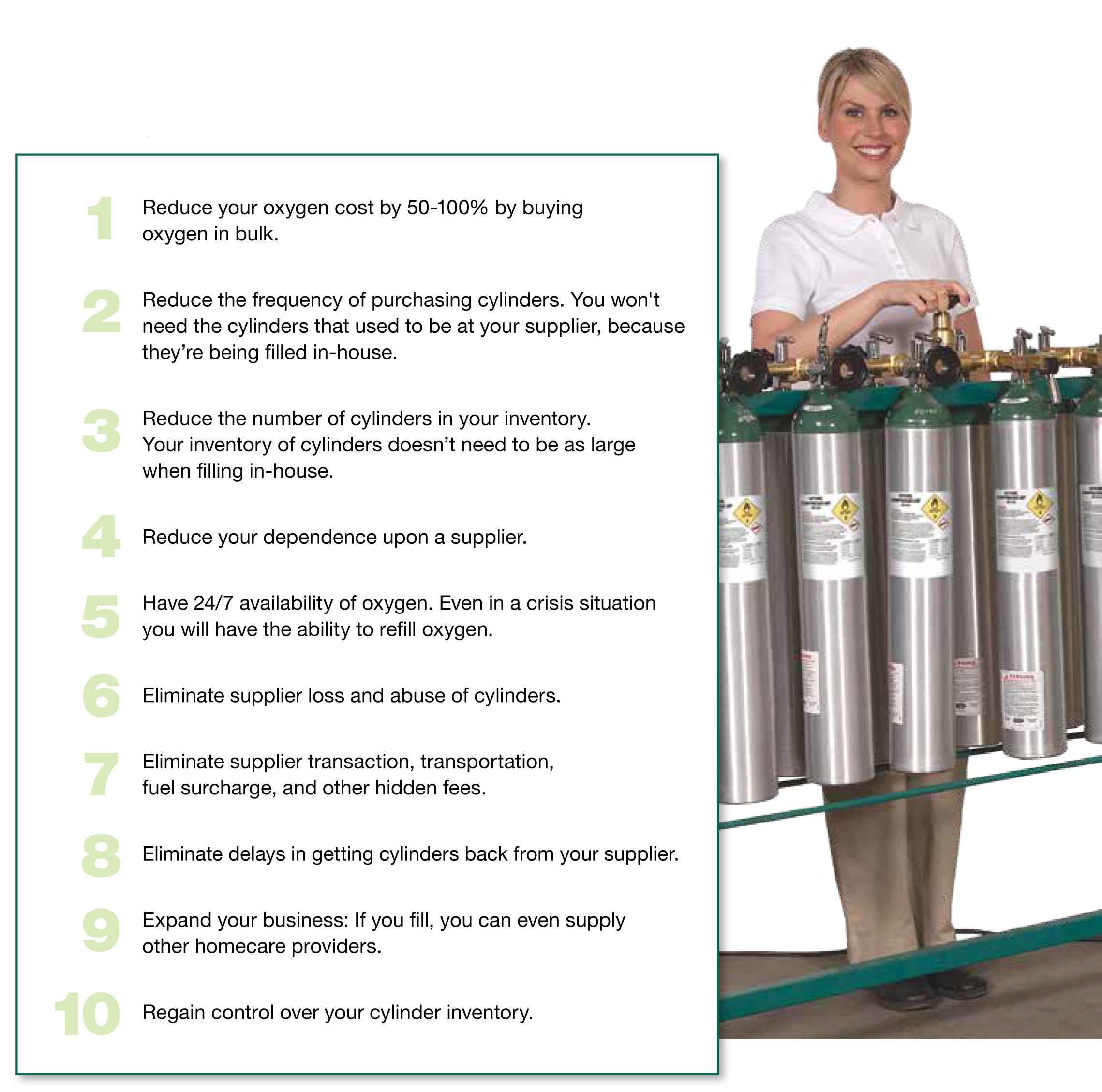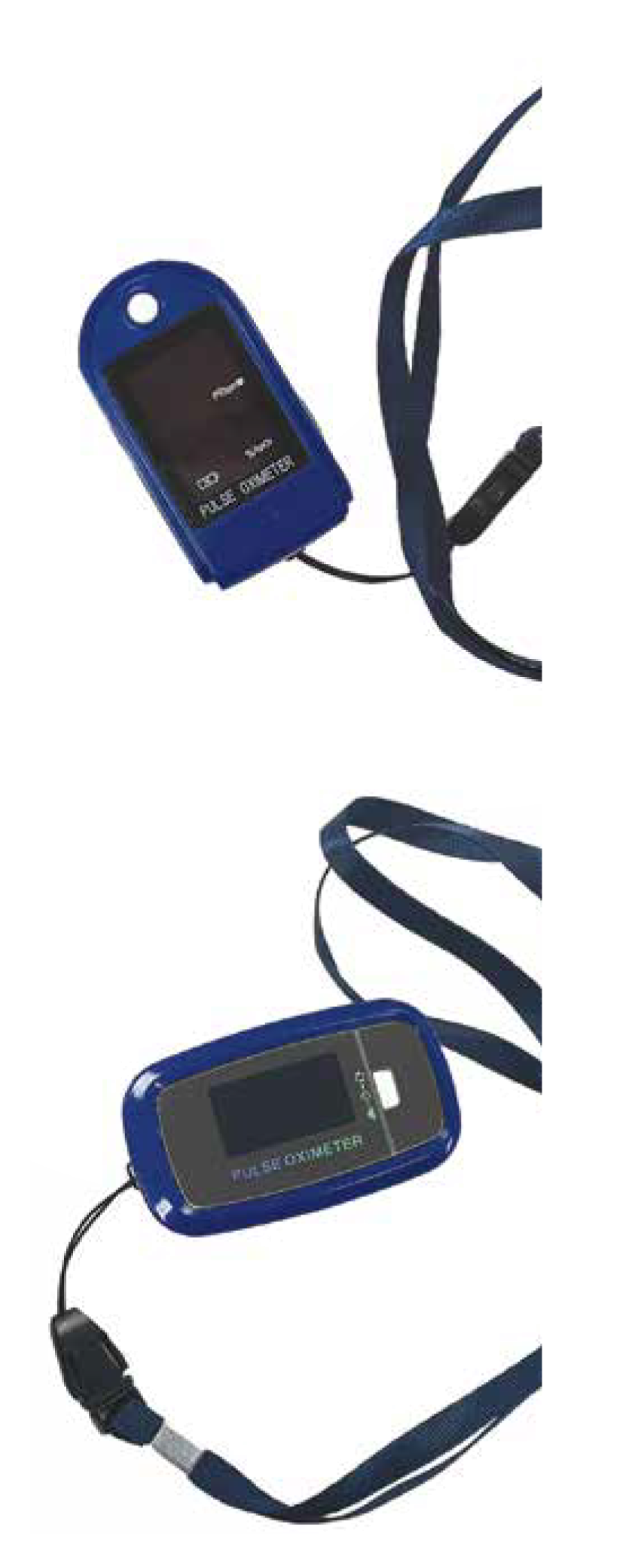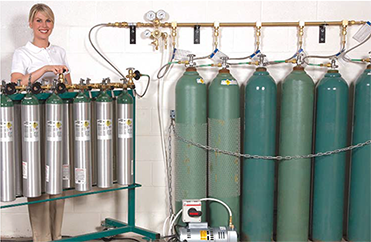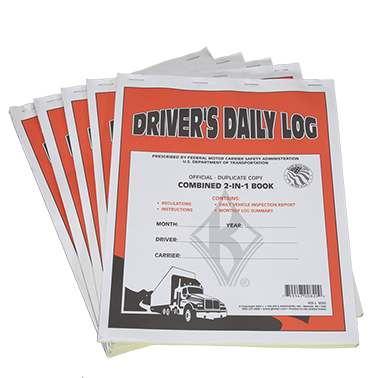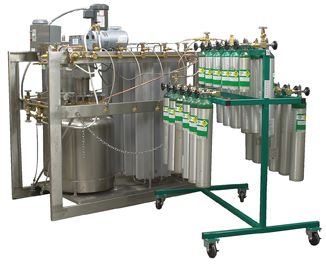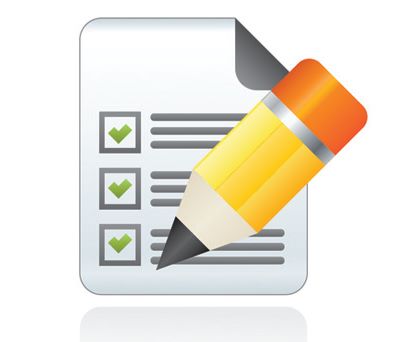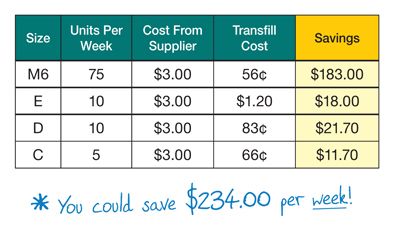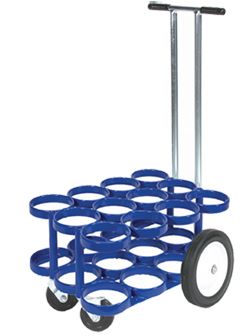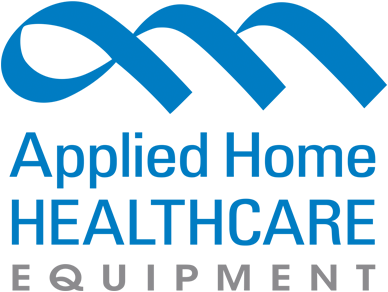Posted By Carmella Arroyo
March 22, 2021
Category: Cylinders, Gas, Compressed, Rules, Safety, Oxygen, Transporting, Storing, Regulations
Here are four regulatory rules you should follow when transporting, moving, and storing or working with compressed gas
Posted By Brittany Fichter
January 13, 2021
Category: Oxygen, Expo, Education, Ceu, Respiratorytherapist
Learn from the best in the industry on all things oxygen.
Innovations, introductions, ideations and discoveries will abound at the Oxygen EXPO2. The 2021 show will feature sessions led by industry experts. Each session will aim to deliver solutions to some of the industry’s most pressing challenges and exciting
Posted By Brittany Fichter
January 31, 2020
Category: Oxygen, OxyGo, Events, Technology, Industry News, Training Education
DMEs from Oklahoma, Texas, Florida and across the country attended Oxygen EXPO2 in Orlando, FL on Jan 21st of this year. The expo, subtitled The NEXT Tech in Ambulatory Oxygen, gave DME providers an opportunity to learn about the latest homecare oxygen trends and market opportunities.
“We are all about technology and innovation, so being able to host an event like this where we can share our knowledge and help contribute to the industry is a great opportunity,” said OxyGo CEO Victoria Marquard-Schultz.
The one-day conference covered topics such as the future of portable oxygen, oxygen safety, finding assets and revenues in a connected DME market, and leveraging social media to increase patient retail and referrals. The keynote address was on advances in pulmonary medicine and was given by Franck Rahaghi, MD, MH, FCCP, Director of Respiratory Care at Cleveland Clinic Florida Hospital and Clinic.
Dr. Rahaghi spoke about advances in pulmonary care and the importance of getting patients to move and exercise as part of their treatment referencing the American Lung Association’s famous slogan, “If you can’t breathe, nothing else matters.” “POCs and their tankless delivery of oxygen are giving patients their freedom back,” he said, “while improving their quality of life and overall sense of happiness.” He said that ambulation could increase the life expectancy of patients on ox
Posted By Laura Frederick
September 17, 2019
Category: Oxygen, Oxygen Safety
The true death toll of home oxygen fires across the United States is likely to be higher than previous estimates by the National Fire Protection Association (NFPA), a new study - The prevalence and impact of home oxygen fires in the USA – has revealed.
The study examines media reports of home oxygen fire incidents in the US between December 2017 and August 2019. It identifies news reports on 311 separate home oxygen fires over a 20-month period. These incidents resulted in a total of 164 deaths, 71 serious injuries, and 119 minor injuries, which amounts to more than one death every four days.
Exploding cylinders are referenced in a third of all reported home oxygen fires, posing a significant risk to third parties, including the emergency services. In fact, 11 of the reported deaths were third parties including family members and other residents. A firefighter also fell victim to a home oxygen fire when a propane tank exploded.
This new data points towards a material public health problem in the US. Home oxygen fires represent a much higher risk in the United States than the UK, where stakeholders work together to reduce risk and where the fitting of oxygen firebreaks (also known as thermal fuses) is mandatory. In fact, an American oxygen user is 10 times more likely to die in a home oxygen fire than in Japan, and 20 times more likely than in England,
Although the statistics are already worryingly high, it is likely that they
Posted By Laura Frederick
August 29, 2019
Category: Oxygen, Oxygen Safety, Industry News
Hurricane Season is here - are you and your patients prepared?
• Hurricane season in the Southeastern United States runs from June 1 through November 30, but peaks from mid-late August through September
• Hurricanes can cause massive damage to roadways, which makes it very hard to access patients
• Power outages can cause patients to not be able to charge important medical devices such as their POC's
With power outages being a common occurrence during hurricanes many patients have no way to charge medical devices. Ensuring the patients have a way to change their POC's battery and having extra battery life can help tremendously during such stressful times.
We have assembled the following kits for those in hurricane paths to be able to provide to a patient.
Please see the kits below for all of the members of the OxyGo family to help your patients keep going! We have also included a checklist to make sure patients are as prepared as they can be.
Click here to download our one page checklist for patient preparedness.
OxyGo FIT Hurricane Bundle
PN: H-OFR-2000-KIT
Includes:
• OxyGo FIT 4.5 hour battery*
• OxyGo FIT External Battery Charger
• OxyGo FIT DC Power Supply
• OxyGo FIT AC Power Supply
OxyGo Hurricane Bundle
PN: H-OFR-1000-KIT
Includes:
• OxyGo 10 hour battery*
• OxyGo External Battery Charger
• DC Power Sup
Posted By Kristen Cifranic
September 08, 2015
Category: Oxygen, Equipment, Regulatory Compliance
It is the responsibility of the company that fills, stores, delivers, handles and uses oxygen to ensure that the label complies with applicable governmental
Posted By Kristen Cifranic
July 16, 2015
Category: Oxygen, Regulatory Compliance
Failure to follow DOT requirements can result in fines of $2,100 or
Posted By Kristen Cifranic
July 08, 2015
Category: Oxygen, Business
The CIO reduced the risks and hassle of e-mail outages by moving the organization’s Microsoft Exchange server to a well-known national e-mail management firm. This firm provides professional 24/7 service, reliability, and much higher level of
Posted By Kristen Cifranic
June 03, 2015
Category: Oxygen, Oxygen Safety, Equipment
In addition to proper education Applied recommends providing patients with a thermal shut off device, such as Applied's OxySafeâ„¢, as part of regular patient set-ups in order to protect against further damage from a tubing
Posted By Kristen Cifranic
May 20, 2015
Category: Oxygen, Regulatory Compliance
The FDA is still inspecting transfillers, and anecdotally we have seen an increase in inspections in our industry. It is very important that you make sure you are registered at the appropriate
Posted By Kristen Cifranic
May 20, 2015
Category: Oxygen, Business, Equipment
Most of us entered the home respiratory industry because we wanted to serve patients. However, if you want to serve patients and especially oxygen patients, you have to make a reasonable profit for your employer or yourself. Frankly, you are not going to be employed very long and/or be in business unless you can. Here are six (6) actions you can do to serve your patients better and make a reasonable profit at the same time:
1. Non-Delivery Business Models:
Reduce or eliminate routine oxygen deliveries by providing patients with lightweight “wearable” portable oxygen concentrators (POC). The combination of a POC and a stationary oxygen concentrator (SOC) can eliminate one or more routine oxygen deliveries per month at an average cost of $50.00 each. Imagine what an extra $50 or $100 (2x at $50 each) per patient would do for your bottom line!
2. Expand Your Service Area:
If you have fewer or no routine oxygen deliveries, you can expand your service area. This can mean more oxygen patients and more revenue and profits. As you are no doubt aware, providers who are hundreds, even thousands of miles away are now serving patients in your service area. Now, you can bid on adjacent CBA as well as other opportunities to serve oxygen patients.
3. Retail Products Such As POCs And Other Patient Aids On Your Website(s):
If you can make a Microsoft PowerPoint presentation, you can make a website. Products like POCs and many other patient aids are sold by internet retailer
Posted By Kristen Cifranic
April 22, 2015
Category: Oxygen, Training Education, Regulatory Compliance
The US DOT requires that every employee receive three types
of training at least every 3 years, and within 90 days of start of employment for new
Posted By Kristen Cifranic
April 06, 2015
Category: Oxygen, Business
The DME environment in which reimbursement dollars have been reduced due to many factors, cutting costs has become as important as the number of patients that you serve. When looking for ways to cut costs, one of the easiest ways is to fill your own oxygen cylinders. When you realize that there are many other advantages to refilling your own oxygen cylinders, it becomes a project that no DME should ignore.
What are the advantages to refilling your own oxygen
Posted By Kristen Cifranic
April 01, 2015
Category: Oxygen, Equipment
Oximeters from Applied are a convenient, portable, non-invasive way to spot check oxygen saturation and pulse rate.
Standard Fingertip Pulse Oximeter
Brighter and larger, digital LED one-way display
Portable, non-invasive spot check of oxygen saturation and pulse rate
Low battery indicator
Continuous working time = 24 hours
Easy automatic power off when the finger leaves the device for 5 seconds
Runs on two “AAA” batteries
Finger sizes from 0.3” – 1.0”
Includes case
Deluxe Fingertip Pulse Oximeter
Dual color, high resolution, and easy to read LED display with multi-display, four directions and six display modes
Portable, non-invasive spot check of oxygen saturation, pulse rate, pulse bar and plethysmogram
Easy automatic power off when the finger leaves the device for 5 seconds
Low battery indicator
Includes lanyard
Continuous working time = 20 hours
Runs on two “AAA” batteries
Finger sizes from
Posted By Kristen Cifranic
March 04, 2015
Category: Oxygen
Applied recognizes that the last several years have caused DME companies to make many changes in the way they do business. Market conditions have caused DME companies to look for more efficiency in their operations and try to reduce costs. Applied wants to help you.
Refilling your own oxygen cylinders is a sure-fire way to cut your costs. By purchasing oxygen in bulk to transfill using either a gas to gas or liquid
to gas oxygen refilling system per cylinder oxygen costs can be reduced by as much as 90%, sometimes more.
Simply contact Applied and speak with one of our many professionals who offer years of experience in helping DME companies save money and reduce costs by designing an oxygen refilling program that fits your company needs and budget and show you how much you can really save by filling your own oxygen cylinders. Provide Applied with the number of cylinders that you have refilled each week and what you pay to have them filled and we will design a system for you.
We are so confident that we can cut your oxygen costs—we guarantee that we can help reduce your per cylinder oxygen cost by at least 25%.
Lease to own with Applied's leasing partners. Just ask us for
Posted By Kristen Cifranic
January 07, 2015
Category: Oxygen, Regulatory Compliance
The role of the US Department of Transportation is to ensure the safety of the public and of the drivers that work on the roads.
One way that the US DOT implements driver safety is to require that drivers do not stay out on the roads too long, drive without breaks, and they must carry a required log book.
Log books are only used when, in general, a commercial motor vehicle is used as part of a business and is involved in interstate commerce and fits any of these descriptions:
Weighs 10,001 pounds or more
Has a gross vehicle weight rating or gross combination weight rating of 10,001 pounds or more
Is designed or used to transport 16 or more passengers (including the driver) not for compensation
Is designed or used to transport 9 or more passengers (including the driver) for compensation
Is transporting hazardous materials in a quantity requiring placards
Most oxygen providers will fall under this category because they carry 1,001 lbs. of oxygen (that's the tanks and the gas) and therefore must use placards.
However, even if you placard you will be exempt from the log book requirement if your drivers don't drive farther than a 100 mile radius from the work place, and they don't work longer than 12 hours. (49 CFR 395.1 (e))
What is DOT?
DOT is the United States Department of Transportation. This Federal agency has the power to regulate any hazardous material that is being trasnported in commerce. (i.e. Being bought, sold and/or delivered!)
Who Has To
Posted By Kristen Cifranic
December 03, 2014
Category: Oxygen, Business
DME companies can reduce costs by 25% by filling their own cylinders with an Applied oxygen transfilling
Posted By Kristen Cifranic
November 24, 2014
Category: Oxygen, Regulatory Compliance
Anyone who fills, or private labels the gas must register with the FDA. If you are confused, or looking for more answers, Applied can register for you. Just give us a call for more information
Posted By Kristen Cifranic
October 22, 2014
Category: Oxygen, Equipment
If you are spending more than one dollar on your oxygen cylinders, you should be filling. If you fill 100 cylinders or less per week, then you should start off with a gas to gas filling
Posted By Kristen Cifranic
October 15, 2014
Category: Oxygen, Equipment
Applied Rattle Less carts and racks are covered with a proprietary coating that protects cylinders from damage and reduces
 View Cart []
View Cart []